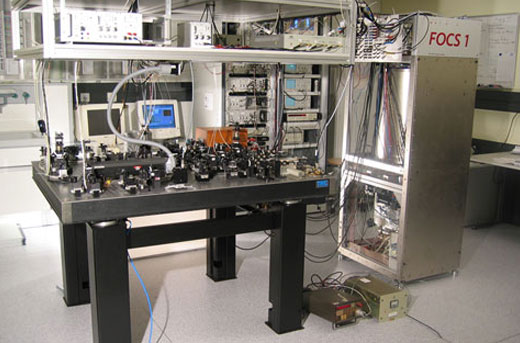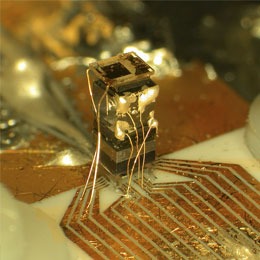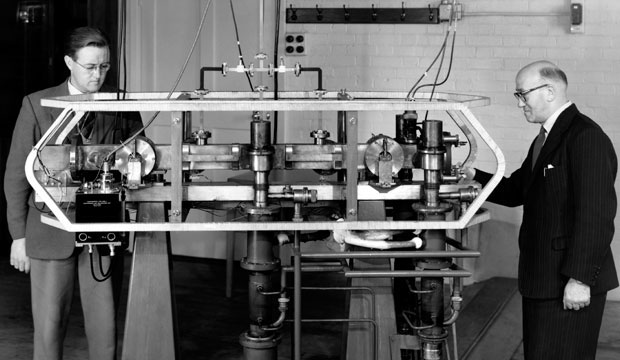Defining an atomic clock
An atomic clock is a clock that is run, electronically, and is the most accurate keeper of time known to humans. Using atomic physics, an atomic clock is extremely precise (with an accuracy of 10^-9 seconds per day – 1 in 10^14 – which means it would take years to lose a second, even without regular adjustments). Atomic clocks are the primary standards for international time and for use in global navigation systems such as the global positioning system (GPS) that you may use in your vehicle or cell phone.
The differences between atomic clocks and other clocks
Clocks run on resonators. A pendulum clock uses the pendulum as its resonator. Many standard clocks and watches use quartz. Atomic clocks use cesium. The difference between these is distinct. Pendulums have to be weighted, and have a limit, and are affected by environmental factors such as air movement and temperature. Quartz resonance changes with temperature differences, and the manufactured quartz has inherent differences, which results in many clocks using quartz resonators losing several seconds a week – or even a day. Cesium atoms, on the other hand, resonate at the same frequency regardless of any other factors such as temperature or season.
Primary atomic clocks
There are many atomic clocks around the world, including several in orbit around the earth. Each region has its primary clock that is used to synchronize the other clocks in the area. The primary atomic clock for the US is located in Boulder, Colorado, at the National Institute of Standards and Technology (NIST). The Universal Atomic Clock is housed in Paris, France, and it takes into account many other atomic clocks to set the ‘official’ time.
Atomic clocks in relation to business and commerce
Having a clock with pinpoint accuracy is more important in today’s world of electronics than it was when it was created. It has always been good to have precise time for meetings and appointments, but our economy is also largely based on precise time. This is especially true for the stock market and other exchanges.
 GPS and its relation to precise time
GPS and its relation to precise time
GPS (Global Positioning System) software, as mentioned above, is also based on precise time. Without precise time, accessible through atomic clocks, GPS locating would be much less accurate. Any GPS antenna that has a good view of the sky, no matter in dark or daylight, is able to synchronize with the GPS satellites.
Atomic clocks and telecommunications
The one way that the atomic clocks’ precise time affects the most people in today’s world, though, is in the area of telecommunications. Assuming you are reading this article online, your computer and connection used atomic time to access, download, and display this text in its proper order on your screen. This enables you to be able to read the words and paragraphs rather than random symbols or gibberish.
While there are areas in the world that put less of a premium on time, a large portion of the world’s population depend on the accuracy of the atomic clock.
Related links
- How an Atomic Clock Works (Video from EngineerGuy Series #4)
How an Atomic Clock Works (Video from EngineerGuy Series #4) - Atomic Clocks on Satellites and Mitigating Multipath | Inside GNSS
- Atomic clock – Wikipedia, the free encyclopedia


